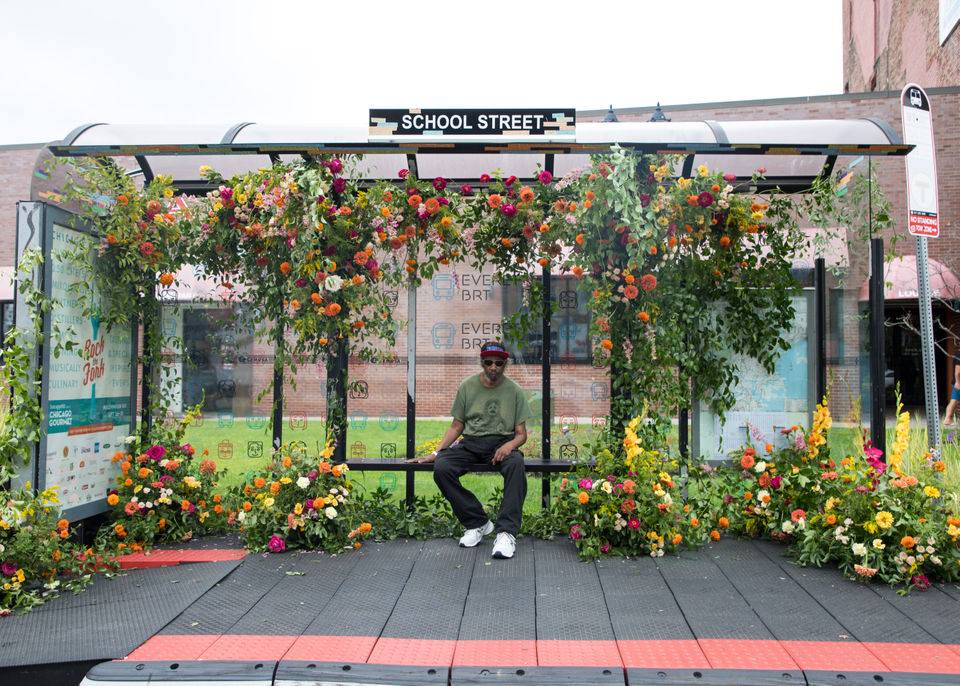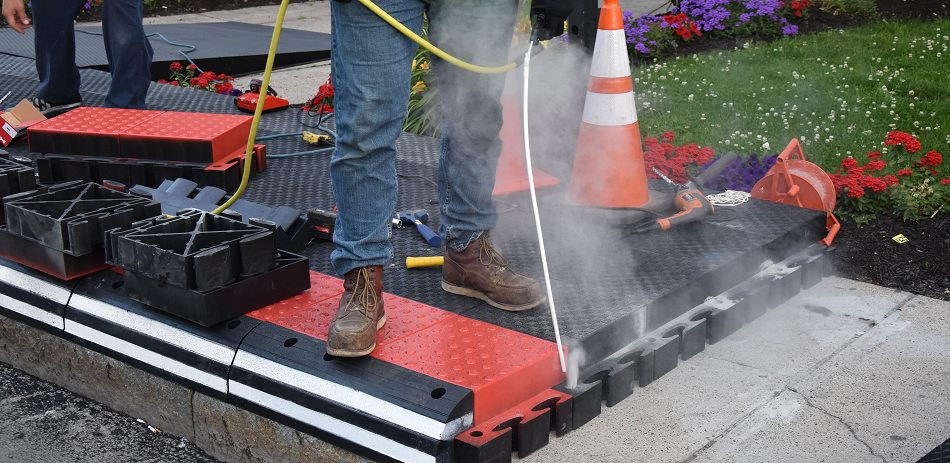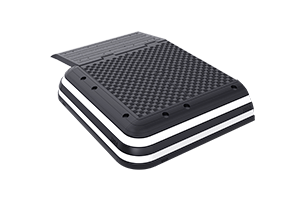| PROJECT NAME: | Broadway Avenue Bus Rapid Transit Corridor. |
| CITY: | Everett, Massachusetts. |
| LOCATION: | Broadway Avenue. |
| OPENING DATE: | July 2017. |

Everett, Massachusetts, is a growing city near downtown Boston with an increasing demand for public transit. At the request of the Mayor of the City of Everett, the Massachusetts Department of Transportation (MassDOT) developed the Everett Transit Action Plan in 2016. This plan recommended rapid measures to improve the frequency and other aspects of the bus service. It suggested that part of the solution would be to create bus lanes exclusively reserved for buses. Besides that, the plan paid attention to the comfort of the citizens who use the bus service and suggested an improvement in accessibility at bus stops. Accessibility was a key goal of the plan, because it was essential for reducing the time it took passengers to board buses.
Need and project objectives.
The Everett Transit Action Plan proposed the construction of a Bus Rapid Transit (BRT) Corridor on Broadway Avenue. The main objective of the project was to increase efficiency in the bus network. This involved creating a southbound, peak-hour bus lane on Broadway Avenue to reduce travel times enough to increase frequency.
In addition to the bus lane, the City of Everett needed to guarantee near-level access from the bus stops to the buses. The existing sidewalks were too low to guarantee accessibility to the transit vehicles. Without the accessibility improvements, passengers would find it difficult to board buses seamlessly. As this was also a quick-build project, the authorities decided not to use permanent materials for the adaptation works and instead to install a temporary solution.

The proposed solution.
This consisted of raising the height of the existing sidewalks at bus stops by installing three Vectorial® system bus boarders at the following locations:
- 390 Broadway (Southbound).
- 405 Broadway (Northbound).
- 416 Broadway (Southbound).
three bus boarders were installed on the sidewalk, which helped guarantee near-level access for bus passengers in a short period of time. Vectorial® system was especially suitable for this project because it makes it possible to transform urban space quickly and it is competitively priced compared to permanent works, as projects can be carried out with minimal intervention on public roads. In this case, the City of Everett showed that they could implement service improvements using a quick-build methodology, and data shows that citizens approve the project.

Collected feedback.
The city collected feedback on the bus boarders in November 2018, and asked riders about their perceptions of the permanent lane. The results of public feedback collected for the platforms revealed 45% of survey respondents found it “much easier” to board the bus.
Including those that said it was “somewhat easier” and that they were “satisfied” with the platforms, over 80% of the respondents were in favor of the platforms, with only 2% making negative comments.
Source: Streetfilms






